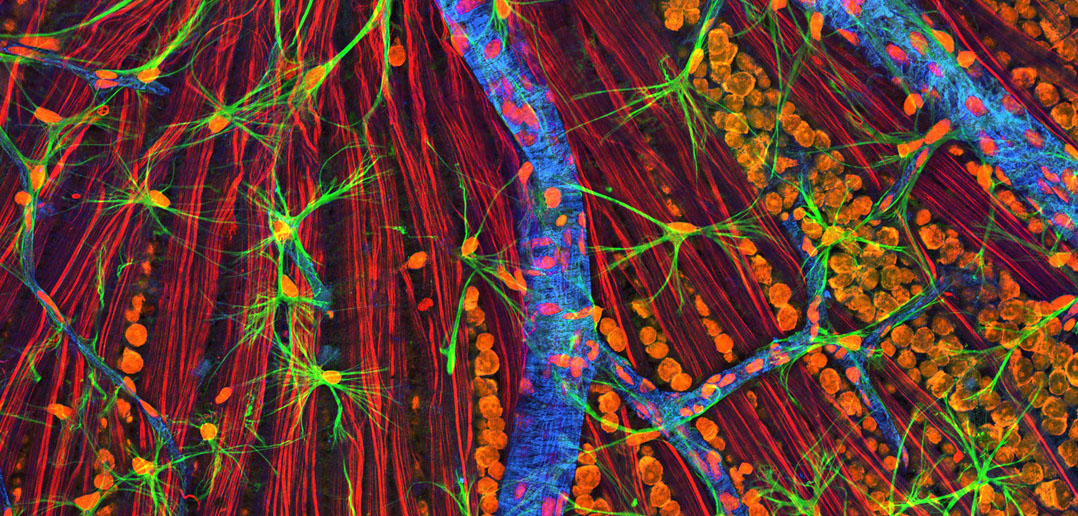A new study of patients with glaucoma in Russia reports a strong association between the degree of retinal ganglion cell loss and the severity of depressive symptoms. The loss of ganglion cells that occurs due to glaucoma impairs the perception of light and thus results in a decrease in the quality of vision. This study was published in Journal of Affective Disorders.
Glaucoma is a group of eye conditions that damage the optic nerve, which transmits visual information from the eye to the brain. Increased pressure inside the eye, known as intraocular pressure, is often associated with this damage. Left untreated, glaucoma can cause vision loss and, in severe cases, permanent blindness.
Retinal ganglion cells are an important part of the optic nerve. They are neurons that are located in the innermost layers of the retina and receive visual input, converting it into nerve impulses which are transmitted to the brain via the optic disc. In glaucoma, increased pressure inside the eye can place mechanical stress on these cells, leading to their degeneration and loss.
Being able to see during the day is important for sleep and mood. Studies have found that people with glaucoma are more likely to experience mood swings and cognitive difficulties. A study in Mexico from 2021 reports that individuals with glaucoma have 10 times higher rates of depressive symptoms than the general population.
Study author Denis Gubin and his colleagues wanted to investigate whether the increased risk of depression in individuals with glaucoma could be associated with loss of retinal ganglion cells. They used a non-invasive imaging technique called optical coherence tomography to capture detailed images of the retina. They also used a diagnostic test called a pattern electroretinogram to assess the electrical response of the retina, namely the activity of retinal ganglion cells, to visual stimuli, specifically stimuli that are patterned like a checkerboard pattern.
This study involved 115 patients diagnosed with glaucoma. They were required to have good visual acuity with or without correction, a transparent eye lens and no pathology of the retinal macular area.
The participants underwent assessments for depressive symptoms, preferred sleep patterns, and eye health. The researchers evaluated retinal ganglion cell damage, the function of these cells, eye pressure, and other factors. They also analyzed saliva samples and genetic information.
The results showed that the more damage to the retinal ganglion cells and the more advanced the glaucoma, the more severe the depressive symptoms. Participants with more severe depressive symptoms had greater damage to retinal ganglion cells and lower cell function. Depressive symptoms were also associated with sleep patterns, sleep duration, and age, regardless of gender.
Analysis of saliva samples and genetic information showed no direct relationship between depressive symptom severity and melatonin levels or genetic variation. However, patients with specific genetic variants and advanced glaucoma tend to have more severe depressive symptoms.
The investigators concluded that progressive loss of retinal ganglion cells is related to depression scores, especially when the overall loss exceeds 15%. The study shows that loss of these cells in advanced glaucoma can affect non-visual processes related to light sensitivity and cause mood disturbances.
While this study provides insight into the relationship between eye health and depression, it does have some limitations. The study design did not allow us to determine cause-and-effect relationships. In addition, the researchers did not consider the participants’ history of mood disorders, so it remains unclear whether depressive symptoms developed as glaucoma progressed or appeared before the disease started.
The study, “Depression scores associated with loss of retinal ganglion cells”, was authored by Denis Gubin, Vladimir Neroev, Tatyana Malishevskaya, Sergey Kolomeichuk, Germaine Cornelissen, Natalia Yuzhakova, Anastasia Vlasova, and Dietmar Weinert.
#Deteriorating #vision #linked #increased #severity #depressive #symptoms #study
